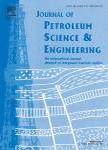版权所有:内蒙古大学图书馆 技术提供:维普资讯• 智图
内蒙古自治区呼和浩特市赛罕区大学西街235号 邮编: 010021

作者机构:Univ Uyo Fac Engn Dept Chem & Petr Engn PMB 1017 Uyo Nigeria Univ Port Harcourt Dept Petr Engn Port Harcourt Rivers State Nigeria
出 版 物:《JOURNAL OF PETROLEUM SCIENCE AND ENGINEERING》 (J. Pet. Sci. Eng.)
年 卷 期:2018年第167卷
页 面:300-315页
核心收录:
学科分类:0820[工学-石油与天然气工程] 08[工学]
主 题:Drilling fluid Artificial neural network Fuzzy logic Case based reasoning Hybrid intelligent systems Genetic algorithm Particle swarm algorithm
摘 要:For an oil well to be said to have been successfully and conclusively drilled, the drilling fluid lies at the heart of the solution. Therefore, the guarantee to solving issues in oil well drilling is to contrive an optimal drilling fluid. However, there is usually a complex interplay of factors involved during drilling fluid formulation, property determination, its performance in the well and its relationship with other wellbore drilling parameters. This is so because drilling muds exhibit time dependent properties. This time dependency is the direct product of the synergy among the various active additives that make up the mud and the characteristic of each additive especially at downhole conditions where the effects of temperature and pressure are well pronounced. These additives are more often than not diverse in size, chemical activity, density and surface energy. Deriving knowledge from the data from these parameters in order to develop a functional relationship between them is a challenging task requiring advanced modelling techniques as well as human intuition and experience. The dependence on human intuition and on the experiential knowledge of professional mud engineers lays bare the shortcomings of traditional mud design techniques. Artificial intelligence techniques have been shown to alleviate this challenge. Exploiting the abundant literature on the various applications of artificial intelligence in oil and gas operations, several works that show how and what artificial intelligence techniques are used in the drilling fluid industry, and what have been achieved due to their use have been selected. In this paper, a review of existing artificial intelligence techniques and their applications in drilling fluid engineering is given. This paper also dug up and analyzed the strengths and pitfalls of each artificial intelligence technique. The examination of the strengths and deficiencies was done using the following virtues as the basic criteria: robustness a